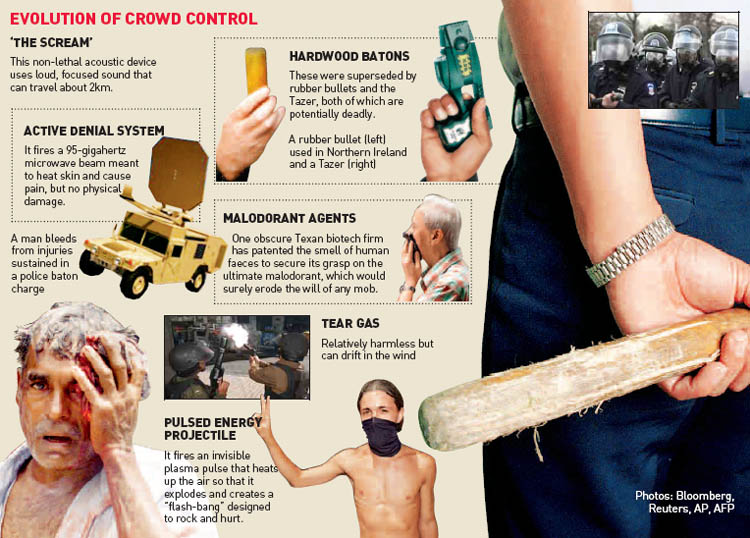|
| ||
|
← "Daily linklets 13th December" |
Return to Main Page
| "Daily linklets 14th December" →
| TrackBack (0)
December 13, 2005
You are on the invidual archive page of WTO MC6: Day 2. Click Simon World weblog for the main page.
|
|
WTO MC6: Day 2
The first day of the conference proper. Inside, the Americans have already upped the ante, saying the elimination of cotton subsidies (deemed a key project to helping developing countries) is tied to broader agricultural subsidy cuts and saying a heads of government meeting may be needed to take talks forward - that's a vieled sleight at trade ministers, saying they need their bosses to take over because they're all useless. Good luck to the city hosting that gathering! But as usual there's far more interesting things happening outside the convention centre. The SCMP is going to town on this, with liftouts and massive coverage, including a prominent pointer to their website...which requires paid access, and a cheery "We welcome all the delegates and wish the meeting every success." That should put delegates in the right frame of mind! They even ask for "citizen journalists"...see below. For those that are wondering what all the fuss is about, Jake van der Kamp save me from having to explain why Italian textile workers and Korean farmers are their own worst enemy in opposing free trade, stealing from the poor to give to themselves and missing the real problems of the WTO. The full article is below the jump. Other reading This will be updated throughout the day.
Protesters shoot themselves in foot when they oppose free trade "Many workers have lost their jobs and their wages have gone down in Italy. The working conditions have also become worse. Textile workers in Italy are most affected. We have come to protest against the talks and we want to tell the world that workers' rights should be respected and we should not be exploited."
Blunt facts about mob control As the WTO ministerial gets under way, a key issue is an extreme form of customer relationship management: crowd control. The authorities have reason to fret about how the inevitable protests unfold because major WTO events usually degenerate into riots spearheaded by anti-capitalist radicals. In fact, violence has become such a staple that Grand Theft Auto maker Rockstar Games has developed a WTO riot game called State of Emergency. No wonder police are reportedly stocking up on riot shields and rubber bullets, while the Highways Department is ensuring paving slabs are firmly in place so that protesters cannot use them as missiles.posted by Simon on 12.13.05 at 05:50 PM in the WTO category.
Trackbacks:
TrackBack URL for this entry: http://blog.mu.nu/cgi/trackback.cgi/137407 Send a manual trackback ping to this post.
Comments:
Why would the police use Queen music? That's not gonna disperse a crowd - it’ll attract one! I know, I know .. at a mile. posted by: shaky on 12.13.05 at 11:50 AM [permalink]Trouble has started - some people have tried to swim to the convention center and also burning material has been thrown at the barriers. Don't know any more yet. posted by: Flagrant on 12.13.05 at 04:57 PM [permalink] |
|
